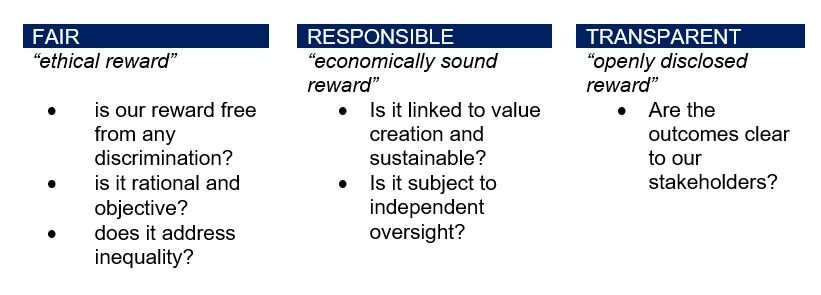LinkedIn article:
King IV guidelines and practice notes expect the remuneration committee to demonstrate how pay is fair, transparent and responsible within the organisation to all stakeholders.
In addition, the remuneration committee should also be able to demonstrate progress against areas identified as concerns. The purpose is not perfection, but transparent progress towards a clearly articulated policy.
Five key characteristics of a big-data and analytics approach are crucial to the head of HR and reward:
- Complex and large amounts of employee data are translated into simple, distilled measures;
- Outcomes are highly visual, intuitive to understand – they enable conversation and decision-making;
- They provide objective statistical measures, such as bias towards any race or gender;
- They clearly demonstrate links between variables, such as pay, performance and profit;
- Analysis is “built once, used often”: tools can be reused as data changes.
So how does this translate into the head of HR and reward fulfilling the most important expectations of the board and remuneration committee?
- Information on issues most important to shareholders such as discrimination and fairness is rational and objective, and not anecdotal or based on vague assurance;
- Because we can measure discrimination or bias within our reward, we are able to focus effort and resource on resolution;
- Reward outcomes, an increasingly important part of remuneration disclosures are measurable and clearly objective;
- Because repeated measurement is easy, we are able to show clear progress in implementing a clearly articulated policy.
In short, our disclosures and engagement give comfort to shareholders – we can demonstrate a rational, fact-based approach to reward – our pay outcomes are transparent and measurable, and we are able to objectively show progress.
With best practice disclosures increasingly involving measurement of wage gaps, organisational Gini coefficients and objective assessment of discrimination and fair pay, the use of HR analytics is not only an enabler in boardroom conversations and decision-making, but it becomes the most important language the head of HR and the remuneration committee have to show commitment to understanding and transparently addressing fair and responsible pay.
Matthew Melville runs REM Solutions, a specialist consultancy that optimises reward spend, through a structured diagnostic process and redesign of reward strategy and structures. Core to this is using analytics to enable better-informed HR decisions and more persuasive interaction between HR and the board.
REM Solutions provides an independent pay discrimination analysis, that objectively identifies bias and discrimination, particularly for race and gender.
Matthew Melville is a Master Reward Specialist, the highest level of professional accreditation awarded to less than 15 independent consultants nationwide.



Recent Comments